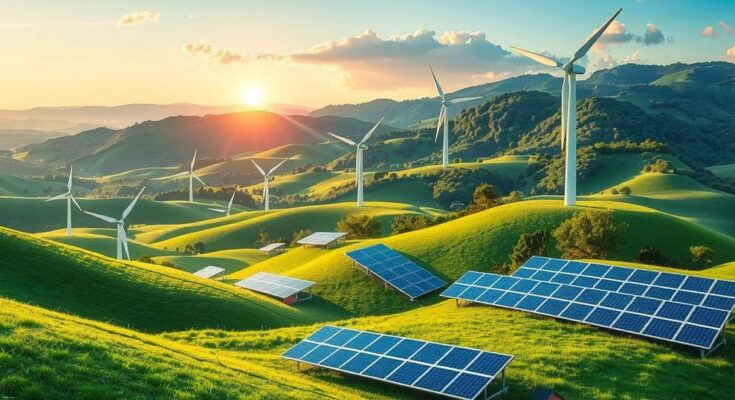Dr. Kapil Narula shares insights on global climate action, outlining current challenges and priorities as we approach 2025. Highlighting a severe temperature rise beyond 1.5°C, he emphasizes the need for enhanced climate financing, robust NDCs, and international cooperation, particularly with Brazil hosting COP30. He calls for immediate action from both policymakers and citizens to mitigate climate change impacts.
In an insightful interview with Senior Journalist Neeraj Tiwari from Marksmen Daily, Dr. Kapil Narula, a recognized authority on clean energy transition and climate change, discusses the state of global climate initiatives and outlines priorities leading up to 2025. With over twenty years of diverse experience in international organizations and academia, Dr. Narula emphasizes the urgent need for collective action to combat the rising climate crisis.
Dr. Narula assesses the alarming findings of the World Meteorological Organization, confirming that 2024 marked the first year with temperatures exceeding 1.5°C above pre-industrial levels. Despite advancements in renewable energy and electric vehicles, the global path remains misaligned with the 1.5°C target, with temperature increases projected between 2.6°C and 3.1°C by century’s end.
He identifies crucial challenges in enhancing global climate response, including inadequate financing, consistent international coordination, and the execution of Nationally Determined Contributions (NDCs). Presently, developed countries only commit $300 billion annually, far short of the $1.3 trillion needed by 2035. Moreover, developing nations grapple with aligning economic growth with sustainability.
The submission of NDC 3.0 targets is significant, with countries like the UAE, Brazil, and the US declaring ambitious emission reduction goals for 2035. These submissions signal progress, yet actual success hinges on the establishment of credible national frameworks and commitments.
As Brazil prepares to host COP30, its leadership is pivotal given that it harbors a substantial portion of the Amazon rainforest. Brazil has the potential to advocate for equitable climate solutions and foster collaboration between developed and developing nations.
The potential re-election of Donald Trump, which could lead to another US withdrawal from the Paris Agreement, poses a major risk to global climate initiatives. Nevertheless, the prevailing momentum within US states, business sectors, and civil society may counter federal policy fluctuations.
Dr. Narula articulates that international priorities for climate action in 2025 must encompass scaling up climate finance, strengthening NDC commitments, implementing Article 6 for international carbon markets, and fortifying resilience for vulnerable populations.
He urges both policymakers and the public to recognize climate change as an immediate concern requiring prompt and equitable actions. Collaboration between leaders and citizens is essential in establishing a sustainable and just future.
The article centers on the recent insights of Dr. Kapil Narula regarding global climate goals as nations approach significant milestones in climate action by 2025. Dr. Narula’s extensive background, including roles at the United Nations and NITI Aayog, affords him a credible perspective on the ongoing climate crisis, emergency financing, and the need for effective international collaboration. The discussion highlights the importance of aligning economic development with sustainability goals in the face of alarming temperature rises and inadequate financial commitments.
Dr. Narula’s discourse underscores the critical importance of immediate action in climate policymaking and community participation. He delineates a framework for achieving climate success by 2025, emphasizing the need for financial mobilization, robust execution of NDCs, and the facilitation of international cooperation. Both leadership and citizen engagement are imperative in navigating the looming climate crisis and fostering a resilient future.
Original Source: marksmendaily.com




